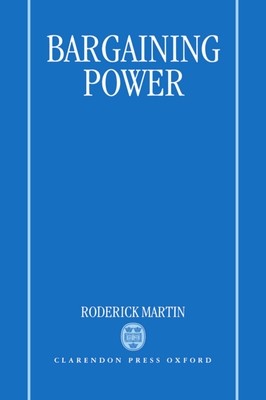
- We will send in 10–14 business days.
- Author: Roderick Martin
- Publisher: Clarendon Press
- ISBN-10: 0198272553
- ISBN-13: 9780198272557
- Format: 16.5 x 24.2 x 1.8 cm, hardcover
- Language: English
- SAVE -10% with code: EXTRA
Reviews
Description
Bargaining Power examines the balance of power between management and unions, showing why some managementsand some trade unionsare more powerful than others. Bargaining power has long been recognized as central to industrial relations, but no previous work has taken the issue as its central focus. Using both sociological and economic evidence, the author shows how managements and unions approach negotiations and how they use power to achieve their bargaining objectives. In turn he analyses different perspectives on power, negotiations, the industrial relations context, and human resources management. The book concludes with an examination of the changing position of trade unions in Britain in the 1980s, arguing that union bargaining power remains more significant than suggested by the decline in union membership.EXTRA 10 % discount with code: EXTRA
The promotion ends in 13d.19:50:05
The discount code is valid when purchasing from 10 €. Discounts do not stack.
- Author: Roderick Martin
- Publisher: Clarendon Press
- ISBN-10: 0198272553
- ISBN-13: 9780198272557
- Format: 16.5 x 24.2 x 1.8 cm, hardcover
- Language: English English


Reviews